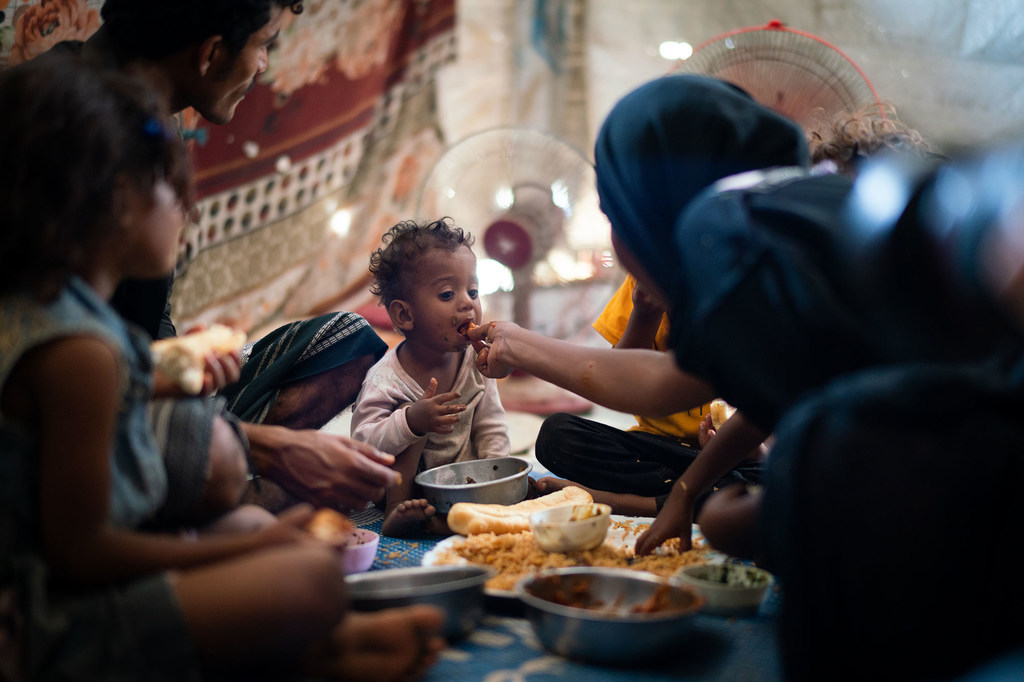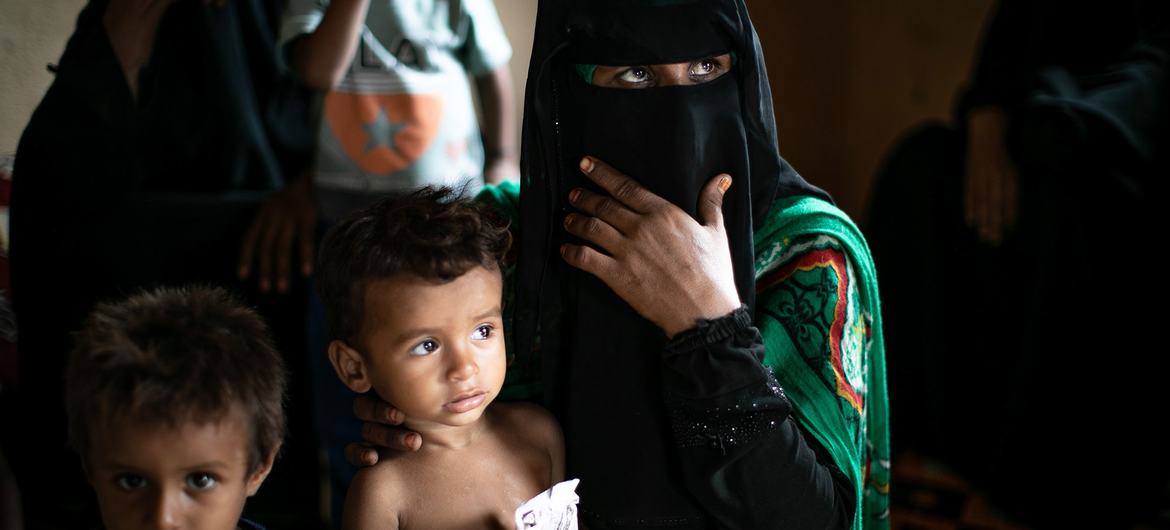Yemen alert: 8 million face reduced rations amid funding shortages
 The UN food relief agency warned on Wednesday that it is running out of funds to continue providing food assistance to 13 million Yemenis.
The UN food relief agency warned on Wednesday that it is running out of funds to continue providing food assistance to 13 million Yemenis.
From January, eight million who are going hungry in Yemen will receive a reduced food ration, while five million others who are at immediate risk of slipping into famine, will remain on a full ration.
“Desperate times call for desperate measures and we have to stretch our limited resources and prioritize, focusing on people who are in the most critical state”, said Corinne Fleischer, Regional Director of the World Food Programme (WFP) for the Middle East and North Africa.
The lowest point
The reductions come at the worst possible time for families in Yemen who are dependent on WFP’s food assistance to survive.
As currency devaluation and hyper-inflation drive the economy to near collapse, inadequate food consumption has risen rapidly, affecting half of all families over the last three months.
And food prices have more than doubled across much of Yemen through the course of the year.
Meanwhile, fighting across multiple frontlines continues to force families to flee.
“The Yemeni people are now more vulnerable than ever, reeling from relentless conflict and the deepening economic crisis that has pushed millions into destitution”, said Ms. Fleischer.
From bad to worse
Beginning in January, families will receive barely half of WFP’s daily minimum ration.
Moreover, without new funding, more severe reductions will soon be unavoidable, perhaps even cutting people from food assistance programmes completely.
Malnutrition treatment and school meals may also be reduced.
“Every time we reduce the amount of food, we know that more people who are already hungry and food insecure, will join the ranks of the millions who are starving”, said the WFP official.
‘Dangerously low’ stocks
Currently, more than half the Yemeni population – some 16.2 million people – face acute hunger and 2.3 million children under five, risk malnutrition.
“WFP food stocks in Yemen are running dangerously low at a time when budgets for humanitarian crises around the world are stretched to the limit”, Ms. Fleischer said.
WFP needs $813 million to continue to assist the most vulnerable in Yemen through May.
And in 2022, the agency will need $1.97 billion to continue to deliver vital assistance to families on the brink of famine.
“We desperately need donors, who were so generous in the past, to work with us to avoid this looming hunger catastrophe”, she concluded.

© WFP/Annabel SymingtonChildren are treated for malnutrition at a WFP-supported mobile clinic in Lahj, Yemen.



